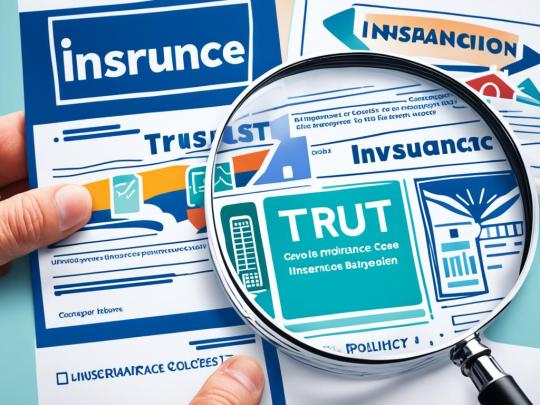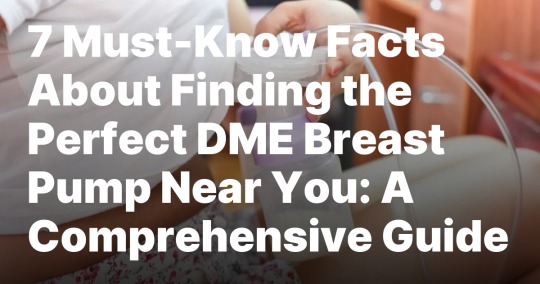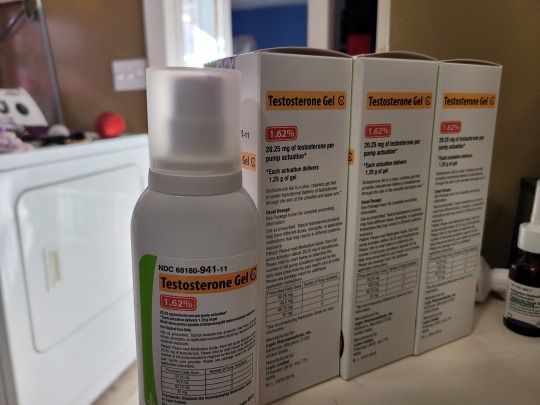#Insurance cost comparison
Explore tagged Tumblr posts
Text
Compare Insurance Quotes: Find the Best Rates Easily
Have you ever felt like you’re paying too much for your insurance coverage? The truth is, the insurance industry is highly competitive, and by simply comparing insurance quotes, you could save a significant amount on your auto, life, home, and health insurance premiums. But do you know how to effectively compare quotes and find the best deals? In this article, we’ll guide you through the process…

View On WordPress
#Affordable insurance#Best insurance rates#Compare auto insurance#Compare home insurance#Insurance comparison#Insurance cost comparison#Insurance quote comparison#Insurance rate comparison#Online insurance quotes
0 notes
Text
Tit removal consult tomorrow. Extremely nervous. I am thinking I am going to wait a year to scrape up the funds and maybe try to fix my rotator cuffs before I atrophy all my chest muscles while healing. But like what if he's not taking my insurance a year from now. What if there's some other reason this is my only chance? What will I do then?
#there are not many plastics left who still take insurance and his results are by FAR the best of all of them#but this is in part because he insists on underarm lipo#which! i do want#but that procedure is not covered and it costs like $7k#and i haven't gone much toward my deductible or out of pocket max#so while the main cost is not much in comparison it's still several hundred more dollars i just don't have#oh he resizes ur areolas too
2 notes
·
View notes
Text
Hi I'm one of the Americans that transferred to Rednote as word of Tiktok shutdown got around. I just wanted to drop by and show everyone a comparison that is WILD to me.

These are all in Yuan, the local currency. A buck, two bucks, six bucks... that seems really nice.
And then you pop it in U.S dollars.

14 cents. 14 cents for food.
So seeing the difference there, I got curious and made a post asking the netizens how much they typically pay for things, and I asked for how much my meds would cost. These answers are eye opening.

Eleven Yuan.

A dollar and two quarters.
Without insurance, my meds are 400 bucks in U.S currency.
There's no excuses for this. No excuse for why anyone should have to live like this.
#they were baffled some of us work two jobs just to get by.#human beings are not meant to live like this#like im not saying theres one true spot thats better than everywhere else but this spot could atleast be fucking liveable.#rednote#tiktok
10K notes
·
View notes
Text
Data Protection: Legal Safeguards for Your Business
In today’s digital age, data is the lifeblood of most businesses. Customer information, financial records, and intellectual property – all this valuable data resides within your systems. However, with this digital wealth comes a significant responsibility: protecting it from unauthorized access, misuse, or loss. Data breaches can have devastating consequences, damaging your reputation, incurring…

View On WordPress
#affordable data protection insurance options for small businesses#AI-powered tools for data breach detection and prevention#Are there any data protection exemptions for specific industries#Are there any government grants available to help businesses with data security compliance?#benefits of outsourcing data security compliance for startups#Can I be fined for non-compliance with data protection regulations#Can I outsource data security compliance tasks for my business#Can I use a cloud-based service for storing customer data securely#CCPA compliance for businesses offering loyalty programs with rewards#CCPA compliance for California businesses#cloud storage solutions with strong data residency guarantees#consumer data consent management for businesses#cost comparison of data encryption solutions for businesses#customer data consent management platform for e-commerce businesses#data anonymization techniques for businesses#data anonymization techniques for customer purchase history data#data breach compliance for businesses#data breach notification requirements for businesses#data encryption solutions for businesses#data protection impact assessment (DPIA) for businesses#data protection insurance for businesses#data residency requirements for businesses#data security best practices for businesses#Do I need a data privacy lawyer for my business#Do I need to train employees on data privacy practices#Does my California business need to comply with CCPA regulations#employee data privacy training for businesses#free data breach compliance checklist for small businesses#GDPR compliance for businesses processing employee data from the EU#GDPR compliance for international businesses
0 notes
Text
7 Must-Know Facts About Finding the Perfect DME Breast Pump Near You: A Comprehensive Guide
Discover the essential facts you need to know about finding the perfect DME breast pump near you. This comprehensive guide provides all the information you need to make an informed decision. DME Store Locator DME Store Locator Find the nearest DME store in your area. City: ZIP Code: Nearby DME Stores: Introduction Welcome to the ultimate guide for finding the perfect DME (Durable Medical…

View On WordPress
#Affordable Care Act#breast pump advice#breast pump benefits#breast pump brands#breast pump cleaning#breast pump comfort#breast pump comparison#breast pump conclusion#breast pump considerations#breast pump cost#breast pump durability#breast pump ease of use#breast pump efficiency#Breast Pump FAQs#breast pump features#breast pump guide#breast pump insurance#breast pump introduction#breast pump maintenance#breast pump near me#breast pump online#breast pump portability#Breast Pump Recommendations#breast pump reliability#breast pump rental#breast pump reviews#breast pump safety#breast pump selection#breast pump tips#breast pump troubleshooting
0 notes
Text

Hello all, informative trans guy post here. IF you are taking testosterone as part of your HRT or transition process, you've probably heard several times that testosterone is a controlled substance, very difficult to source, and that you are limited on the amount of which you can have at one time. You may even be wondering the truth of these claims.
Well... the answer is... that it's mostly true. But I can tell you how to make things a bit easier on yourself, if you're having a hard time.
This "guide" is 100% USAmerican based. Sorry, but I live here, and don't know how this works outside of my own country.
1: Testosterone is a controlled substance.
Well... it is. Testosterone is a controlled substance in the United States, being a Schedule III drug along with drugs like ketamine. This means that in some states, it can be very difficult to source at all and even harder to source in significant or consistent quantities. This is largely due to people taking anabolic steroids, and very little of testosterone's controlled status historically had anything to do with transgender people using it as part of their medical transition, though that is beginning to change as trans men become more visible. There are now some laws restricting the usage of testosterone for the purpose of transitioning, especially in cases of minors and young adults transitioning through their teens.
This is a little different from estrogen, which is prescription-only in its injectable form but does not have controlled status on a federal level. Testosterone, by comparison, is controlled in all of its forms and possessing it without a prescription is very illegal. While it is possible to source and make testosterone without a prescription, much like estrogen, the legal consequences for doing so are much more severe. For this reason, this is not a guide to doing so without using a prescription.
2: Testosterone is difficult to source.
Provided you have a doctor willing to give you a prescription, and either insurance or financial means of covering the cost of said prescription, testosterone is only difficult to source if you are living in a state that heavily restricts the ability to source Schedule III drugs (or has introduced laws restricting the ability to dispense HRT to transgender patients) or if there is some sort of shortage happening.
Testosterone is available at every national pharmacy chain in various forms, and can also be ordered online by pharmacies that may legally serve your state provided they operate within the state's laws. Remember, cis men take testosterone in various forms for their own hormonal function at times, so this is far from a niche transgender-only drug.
Your state may have restrictions on exactly how much testosterone you may pick up from the pharmacy at any given time, how frequently you're allowed to get it, and occasionally how much you're allowed to have in general. This may also change depending if you are picking your testosterone up from a physical brick-and-mortar pharmacy, or if you are ordering online for home delivery.
Some pharmacies will try to tell you they legally can't dispense more- this may conflict with what your doctor tells you, so if your doctor is willing to give you the maximum your state allows you to have and your pharmacy says a different maximum, you need to get your doctor to advocate for you.
Certain forms of testosterone are more prone to shortages and backorders than others. Gel appears to be commonly backordered, and manufacturer shortages are not uncommon. For this reason, my doctor prescribes me a three month supply at a time. For a long time, CVS would argue with me that they legally could only fill one month at a time. I mentioned this to my doctor, because this inevitably means that with the pharmacists at CVS screwing around with my meds that I am not consistent on my dosing month-to-month because when a shortage happens I simply have to go without until they finally get another shipment in.
Now, thankfully, she wrote me a prescription to navigate around that with the three month supply, but she also had someone from her office call and give them a dressing down on why they needed to actually comply with her orders for her patient. I happen to live in a state that the maximum is truly a three month supply, so CVS should not be arbitrarily shortening a doctor's prescription just because they don't think they should be dispensing that many.
Similarly, testosterone is unfortunately not cheap. I happen to take the gel version, which retails at about $400 USD per bottle, and each bottle lasts one month, so that's about $1600 USD worth of medication sitting on my bathroom sink in that photo with four bottles. Now, thankfully, I have insurance, and the insurance I have allows me to pick up all of my medications for free provided the insurance is actually willing to cover it. This means that I spent a grand total of $0 USD on these bottles. Insurance costs vary greatly, so it's wise to see exactly how much a larger supply will cost you prior to actually committing. My current insurance does not allow me to order medications online, but my previous insurance that I did actually have to pay for medications was often cheaper to order online ($40 for a three month supply) than pick up at the CVS ($20 for a one month supply). This is something to consider depending on your individual coverage.
3: You can only have so much testosterone at once.
As for why I have four bottles- due to my job change, I had an insurance change as well as introduced my state's version of Medicaid as a secondary insurance. My initial insurance did not cover these bottles but did cover individual gel packets dispensed as a sealed box of 30. My current insurance does not cover the individual packets but does cover the bottles. The packets are a slightly different dosage than the pump on the bottle, and when making that switch my doctor accidentally under-dosed me, which then created a significant excess when I went to pick up the next month's bottle. As a result, that initial bottle lasted roughly two months before we caught the under-dosing via my bloodwork, which means I opened the second bottle right as I was getting ready to pick up the third (and fourth and fifth).
This is not an illegal situation as there is a clear paper trail within my medical record and prescription history detailing this situation playing out, but it can be dangerous in certain states to have this much over the amount you're supposed to have. It can be illegal to stockpile a Schedule III drug, so I do not recommend intentionally creating this sort of situation for yourself.
That being said, this sort of worked in my favor. Schedule III drugs often need a prior authorization from your insurance before they are willing to cover these medications. Drugs that are not necessarily expected within your demographic, such as being marked as female but taking testosterone, also often require a prior auth. A prior auth can take up to a month to go through insurance, though usually is less than a week. I just passed my testosterone anniversary in late September, which also means my prior auth expired, as they're only good for one year. Instead of, you know, telling me my prior auth expired, CVS just sent me a text stating they were having a problem with my order and that they were in contact with my doctor about it. A week went by with no change so I called my doctor, who reported they never received anything from CVS but would look into the issue and see what the problem was. They called me back the next day to tell me about my expired prior auth and that they fixed it. I then got the text from CVS saying my prescription was ready to pick up about 5 minutes later. That does mean that if I did not have this excess, I would have once again simply not had testosterone for about a week.
4: Public vs Private Insurance
Whether or not your state's insurance will cover testosterone depends entirely on your state. Obama, when creating the Affordable Care Act or now known as "Obamacare", did make it so that states are supposed to be required to cover HRT for transgender adults and even minors in certain situations. Trump did away with several of these protections, which then emboldened certain states to whittle away at what was left. Other states, like my own, strengthened their protections in response, making it easier to access HRT.
This means that while my own state allows me to get free testosterone through the state's insurance (which is income-based eligibility, and I'm making a significant amount over minimum wage but still considered below my state's poverty line) - a friend of mine in another state cannot access HRT using his state's Medicaid, and is required to use private insurance. Additionally, I have insurance through my job, but it does not cover a large enough percentage for it to be feasible. This means that legally, I have to pay for my workplace insurance (barf, that's $200 out of every paycheck) but on the flip side because of my income eligibility I also can still have the state insurance as my co-insurance and that will clean up whatever leftover costs my private insurance leaves me with.
It also means my top surgery will be free, provided I can get it approved through my private insurance. My public insurance will pay the remaining balance of whatever my private insurance is willing to cover, but will not pay for things my private insurance isn't willing to cover at all.
This also means I have to attend exclusively doctors that will take my public insurance if I want to do things this way- however that's a fairly robust list in my state compared to others, so I didn't have to change doctors at all.
This situation is not always the case for every state's Medicaid- but it is worth looking into if you need options and your current insurance sucks or if you're not insured at all.
929 notes
·
View notes
Text
Copenhagen, the bicycle-friendliest place on the planet, publishes a biannual Bicycle Account, and buried in its pages is a rather astonishing fact, reports Andy Clarke, president of the league of American Bicyclists:
“When all these factors are added together the net social gain is DKK 1.22 per cycled kilometer. For purposes of comparison there is a net social loss of DKK 0.69 per kilometer driven by car.” 1.22 Danish crowns is about 25 cents and a kilometer is 6/10 of a mile, so we are talking about a net economic gain to society of 42 cents for every bicycle mile traveled. That’s a good number to have in your back pocket.
And what are all the “social gains” that bicycling grants the city of Copenhagen?
A number of factors are included in the equation such as transport costs, security, comfort, branding/tourism, transport times and health.
Considering that both sitting and car exhaust kill you, it’s a safe bet a lot of the net benefit to society is simply that cycling makes you less of a drag on health insurance and the safety net.
Since the total health benefit of Copenhagen residents’ healthy cycling habits is DKK 5.51 per km, the annual benefit is worth the equivalent of approx. DKK 2.0 billion.
Which means that Copenhagen, a city of 1.2 million people, saves $357 million a year on health costs because something like 80 percent of its population commutes by bicycle, even in winter. That’s $300 per person per year. Clearly, the reason the new Danish minister of the interior said she’d “rather invest in cycle tracks than freeways,” is that only one of those has a positive return.
65 notes
·
View notes
Text
Qasim Rashid at Let's Address This:
On May 20, 1962, JFK delivered an impassioned speech at Madison Square Garden in favor of universal healthcare. Then, decades later in 2006 nearly 7 in 10 Americans believed the government should fund healthcare. And now, a new Gallop Poll reports that 62% of Americans believe in guaranteed universal healthcare. And despite this decades of support, not a single Presidential candidate this cycle had the courage to run on this wildly popular platform. Over the last week I’ve written in detail about America’s Violent Health System, and likewise, shared a deeply personal story about When Insurance Rejects Life Saving Care about our daughter Hannah Noor.
In response, I’ve received overwhelming empathy and compassion from conservatives and liberals alike, Republicans and Democrats, from those who self-identify as “Ultra MAGA” to those who label themselves as “Bernie Social Democrats.” Americans get it. Healthcare needs to be a human right. Sadly, politicians, Republicans and too many Democrats alike, don’t get it. They worship at the altar of corporate donations. The health insurance industry annually spends a harrowing $700,000,000 on lobbying politicians to do their bidding. And that doesn’t even include what they spend on SuperPACs to block out candidates who dare run on a platform of guaranteed universal healthcare. Those same healthcare corporations then engage in a mass media blitz of misinformation and disinformation to convince people to vote against their own self-interests. In reality, guaranteed universal healthcare is a proven model adopted by every single developed nation on Earth (and many lower income developing nations). And while I do not have $700,000,000 to counter the lobbying propaganda health insurance corporations infuse into our politics, I do have access to the facts that health insurance corporations hope the American people don’t realize.
Myth 1: We Can’t Afford Universal Healthcare
Fact: The opposite is true. Dozens of studies prove that universal healthcare will save Americans billions of dollars annually. In fact, 22 studies reviewed all concluded that universal healthcare would save approximately $450 billion a year. And this is a universal conclusion. For example, “Even the Mercatus Center, a right-wing think tank, recently found about $2 trillion in net savings over 10 years from a single-payer Medicare for All system. Most importantly, everyone in America would have high-quality health care coverage.” Moreover, we cannot forget that right now approximately 73 million Americans are on Medicaid, 68 million Americans are on Medicare, and 10 million Americans are on Tricare. That means that of our nation’s 335 million people, approximately 151 million are already on a universal (or near universal) healthcare model. And guess what? These programs each cost significantly less than the exploitative for-profit healthcare model. The overhead on these programs is 2-3%, while the overhead on for profit healthcare is 20%, plus a near unlimited mark up on prescription drugs. In this we have a side by side comparison of access to the exact same doctors and medications, except one has a nominal mark up and the other has a 10X markup. It doesn’t take an MBA in finance to understand that the same product or service without the massive markup is the smarter path to take. The only thing we cannot afford is for the current exploitative for profit model to continue.
Myth 2: If Costs Go Down, So Does Quality of Care
Fact: This is simply not true. It is important to understand why costs decrease, because contrary to the myth, every single one of the above studies found that quality of care would not decrease with universal healthcare.
[...]
Myth 3: Universal Healthcare Puts Millions Out of Work
Fact: What would happen to the roughly 1.8 million Americans who work in medical billing? This is a great question and has a robust answer that I break down in three parts. First, remember that about 40% of these jobs are already in the Medicaid and Medicare and Tricare industries—which is essentially universal healthcare for a portion of society. Therefore, we’re talk about roughly 1 million jobs, which admittedly is still a large number. What to do with those? Well, hence the second point. Expanding Medicare to accommodate another 175 million people will necessarily require medical billing professionals and administrators to do those jobs. Therefore, the question is not about eliminating jobs, but about transitioning workers from the for profit exploitative system, to a non for profit system that prioritizes access to healthcare. Likewise, remember that ending the for profit system saves us at least $450 billion annually. These resources give us options. For example, these are excellent resources that could be spent on a lengthy 2-year salary severance to those in medical billing who do lose their jobs, plus adequate funding and training to allow them to become proficient in a new job. Indeed, at $70 billion annually, four-year-public college costs a fraction of what would be saved by shifting from an exploitative for profit model, to a universal healthcare model. We cannot afford not to make the shift.
[...]
Myth 5: Universal Healthcare Causes Long Wait Lines
Fact: For primary physician appointments, Americans already wait longer under our exploitative for profit model than do people in nations with universal healthcare. Frankly, I marvel at this allegation as I reflect over the fact that it took us more than two years to get our daughter the critical life saving medication she needed, only because our exploitative for profit health insurance company refused to accept our doctor’s medical instruction. In reality, wait times in the United States are shorter only for elective surgery, but for primary care or for critical care, the United States is the worst out of any nation with universal healthcare.
Qasim Rashid wrote a solid piece debunking anti-universal healthcare lies propped up by for-profit health shills.
50 notes
·
View notes
Note
Hallo!! I really appreciate your blog and how open and invested you are in wellbeing outside of medical fatphobia and other ways medicine as an institution can suck. It's also great to see a humanized side of working in medicine, so thank you for your openness :) You mentioned recently not prescribing bariatric surgery to patients except in rare, specific cases. If you have time and energy, would you be able to share a little more about what you think about bariatric surgery when those particular conditions aren't present? Also please feel free to ignore this ask if you're not up for it. Hope you have a great day! 🌸🌼🌺
When someone is fat to the point where they can't do daily activities of living like dressing themselves, walking, etc., then bariatric surgery probably has a place.
However, bariatric surgery has risks. Lots of them. To start with, there's the on-the-table risks. These are a lot lower than they used to be--anesthesia in this day and age is incredibly safe. Getting to bariatric surgery is challenging for most patients, as insurance in the US will typically only work with a few centers that have wrap-around teams including the surgeons but also other specialists, especially nutritionists. So lots of patients go to Mexico. I haven't had a single one of my own patients, since I started having my own patients four years ago, get from the phase of thinking about bariatic surgery to actually having it done in the US. I've had three patients go to Mexico and have it done. I will withhold judgment, because I haven't been to those centers, I don't know what those doctors and teams are like, but I do know the overall out of pocket cost for patients is about 5 grand, which is so much cheaper than it is in the US that it doesn't bear comparison.
Just-after-surgery risks include blood clots that can go to the lungs or the heart. There is always a risk of wound infection, which can be devastating. If a prolonged hospital stay is required, pneumonia is a significant risk.
Any time you have intra-abdominal surgery, your body develops scar tissue. Places where scar tissue fuses different structures together are called adhesions. Having a re-operation after that is more risky because of those adhesions. You are also at higher risk for intestinal obstruction, because your intestines can hang up on adhesion and twist so that they cut off their own blood supply. This is a surgical emergency. When bowel dies, it becomes leaky and lets dangerous intestinal bacteria into the otherwise sterile environment of the abdomen. That higher risk of intestinal obstruction never goes away.
People who have had bariatric surgery are also at risk for dumping syndrome. This is a condition where the small intestine becomes overly stimulated immediately after a meal, because the food is not moving smoothly through the stomach into the small intestine on the natural time scale. That stimulation leads to excessive insulin release in comparison to the amount of glucose absorbed, which can means hypoglycemia, which is life-threatening.
Rapid fat loss leads to significant amounts of excess skin. Many people who've had bariatric surgery go on to have skin removal surgery. This is actually a riskier surgery than the bariatric surgery itself, because you are tampering with the barrier between the inside of your body and the world outside it. And if it's done too early, you can end up needing your skin to stretch again, and having stretch marks in addition to the scars.
After bariatric surgery, you are also worse at absorbing good nutrients. You need lifetime monitoring for vitamin levels, including vitamin B12. If you don't have enough vitamin B12, your nerves start to die. This results in pain that starts in the feet, since the neurons running from the spinal cord to the big toes are the longest and therefore most susceptible in the body.
But perhaps the most upsetting aspect of bariatic surgery to me is that it is presented as a definitive solution.
Is it?
Not for 20-25% of people who have bariatic surgery, who struggle with significant weight regain.
So if the most extreme intervention we have--literally surgically altering your gut--isn't enough to make weight loss permanent, how is anything else going to do it?
You can be skinny. For a little while. But attempts to lose large amounts of weight, including surgically, have high failure rates. The 75% success rate for bariatic surgery is significantly higher than for any other method currently widely available, but the risks are also significantly higher. I don't think it's worthwhile for most patients, especially given how many patients are lied to by their doctors about how much their weight is likely contributing to their health problems. Most of my patients focus on their weight rather than activity levels, they beat themselves up about how they're not doing intense enough exercise but don't incorporate lower-impact exercises like swimming or walking, they try to eat less rather than eating a diet more rich in vegetables and fruits and lower in highly processed foods. You can do so much for yourself without ever framing it as being about weight.
And if you've done that--if you're struggling with being so fat that you can't live your life--then sure. Talk to your doctor about a referral for bariatric surgery. But don't be shocked if the results are not what you were told to expect. Don't be surprised when you find that you actively resent the people who suddenly find you tolerable, even desirable, now that you're not so fat. Don't let them sell you bariatic surgery as a no-downside cure-all, because it most emphatically is not.
716 notes
·
View notes
Text
The thing that gets me so worked up about universal healthcare is how people say that it will be so expensive for the tax payer.
This is long rant warning so I added a break lol.
The TLDR is that even in a low tax state like Florida, someone making 50k a year will have an effective rate of of 32% (for taxes, healthcare, costs for an undergraduate degree).
Someone making 50k a year in a 'high tax' country like New Zealand has an effective rate of 21% (for taxes, healthcare, costs for an undergraduate degree).
For an American and a Kiwi with the same salary of $50k, if they have the same disposable income, the Kiwi will be able to save an extra $75,000 over 10 years that they can use for a downpayment on a home to further build wealth.
Low tax states just have the costs shuffled to other places, you end up paying a LOT more for the same services.
Here's a comparison of someone who makes $50,000 a year in New Zealand and Florida (I chose Florida as an extreme example because they have 0% state tax rate) and each person makes $15,000 worth of purchases that are taxable.
New Zealand
$7,658 in combined income taxes and levies
$2,250 in taxes on $15k of purchases (15% sales tax)
Total of $9,908 - an effective total rate of 19.8% paid to taxes and purchases and healthcare
Florida
$7,945 in combined taxes (federal taxes, social security, medicaid etc)
$1,050 in taxes on $15k of purchases (7% sales tax)
$1,700 average annual health insurance premium for Florida
$2,060 average annual health insurance deductible for Florida
Total of $12,755 - an effective total rate of 25.5% paid to taxes and purchases and healthcare
Even in a low tax state, you're already have less take-home income than someone with the same salary in New Zealand.
But
... in New Zealand with your taxes you're also getting public education. It's not completely free, but costs are fixed, and you get one year of your undergraduate free, so for example a Bachelor of Arts would cost a total of $13,548 (USD $8,347)
If you can't pay that upfront, you can get a 0% loan from the government, which you don't need to start paying off until you earn at least $23k per year. For someone making $50k that would be an extra 6.5% deducted from your income ($270/month) until the loan is paid off (which would be 2 years and 8 months).
In Florida the average student loan debt is 25k and if you're making the same payments as someone in NZ ($270/month) then you'll be paying that off for 11 years. [Note: I believe that some private loan interest rates go as high as 15%].
Bachelor of Arts in NZ $13,548, paid off over ~2.7 years.
Bachelor of Arts in Florida $35,539, paid off over ~11 years.
So lets look at effective payments over 11 years (for simplicity salary stays at 50k).
New Zealand works out to be 21% effective rate over 11 years (including taxes, healthcare, and undergraduate degree).
Florida works out to be 32% effective rate over 11 years (including taxes, healthcare, and an undergraduate degree) - you're paying 52% more!
That means someone with the same income will effectively be able to save an additional $5,000 per year over 11 years, if they invest that extra amount and get a 5% return, the New Zealander will have savings of about $75k which they can use for downpayment for a home etc.
In conclusion, even though it may seem like you're getting a good deal in a low tax state like Florida, you end up paying soooo much more in healthcare and education costs compared to a country where taxes are a little higher, but you get public healthcare and education.
Why is the U.S. so expensive? Well once place to look is defense, intelligence, and police. In the United States this costs on average $3,700 per person. New Zealand spends $1,600 per person (USD ~1,000).
61 notes
·
View notes
Text
"EviCore markets itself to insurance companies by promising a 3-to-1 return on investment — that is, for every $1 spent on EviCore, the insurer would pay out $3 less on medical care and other costs. EviCore salespeople have boasted of a 15% increase in denials, according to the investigation, which is based on internal documents, corporate data and dozens of interviews with former employees, doctors, industry experts, health care regulators and insurance executives. Almost everybody interviewed spoke on condition of anonymity because they continue to work in the industry.
An analysis of the company’s own data shows that, since 2021, EviCore turned down prior authorization requests, in full or in part, almost 20% of the time in Arkansas, which requires the publication of denial rates. By comparison, the equivalent figure for federal Medicare Advantage plans was about 7% in 2022.
...
EviCore is not alone in engaging in the denials-for-dollars business. The second-biggest player is Carelon Medical Benefits Management, a subsidiary of Elevance Health, the health insurer formerly known as Anthem. It has been accused in court of wrongfully denying legitimate requests for coverage. The company has denied all charges. Several smaller companies do the same kind of work.
...
Insurers do not make explicit demands for more denials, a former EviCore sales executive said, Instead, they asked about “controlling the spend” — the amount of money paid out on certain procedures, he said. Nor would EviCore always use the word “denials” — they employed circumlocutions like “inappropriate determinations.”
Aetna and Cigna are two of the companies that have requested “high touch” plans — those that would send more cases to clinical review and thus generate more denials, according to the former employee involved in data issues.
...
Holding the companies legally responsible for their decisions is also difficult. In 2022, Carelon settled a lawsuit for $13 million that alleged the company, then called AIM, had used a variety of techniques to avoid approving coverage requests. Among them: The company set its fax machines to receive only 5 to 10 pages. When doctors faxed prior authorization requests longer than the limit, company representatives would deny them for failing to have enough documentation. Carelon denied the allegations in court and admitted no fault. A spokesperson declined to comment on the lawsuit."
Read the full article here: https://www.propublica.org/article/evicore-health-insurance-denials-cigna-unitedhealthcare-aetna-prior-authorizations
35 notes
·
View notes
Note
don't you think that some of the horrific shit that trump is going to do cis people, including cis women (vis a vis birth control and abortions) might have something to do with the "trans shit". you call him a nazi and then dismiss the "trans shit" as if the actual german nazis from the early 20th century that were led by the actual real hitler did not historically also round trans people into camps, as if the nazi book burning photos we have today are not of magnus hirschfeld's institute for sexual research.
i understand that you're scared of losing birth control. that is horrible, yes. historically though the "trans shit" that the nazis did involved the trans people getting put into camps. i just think if you want to talk about fascism and use nazism specifically, you have to realise that the "trans shit" is a part of the nazism.
the "trans shit" that trump is doing isn't some kind of distraction or inconsequential whatever. why compare someone to a nazi then dismiss something that they've done that actually aligns perfectly with the original nazis as "trans shit". come on, lets use our brains for a second here
no, i don't think abortion rights have anything to do with transgender people, and everything to do with controlling women's bodies and trying to turn us into breeding stock for men again. because, again, I CAN GET TESTOSTERONE IN MY STATE BUT NOT AN ABORTION. IT IS A FELONY TO GET AN ABORTION IN MY STATE. IF A WOMAN MISCARRIES, IT COULD POTENTIALLY MAKE HER A FELON IN MY STATE.
yall keep saying "him going after trans people is a sign he's gin a go after women" WHEN WEVE LOST OUR BODILY AUTONOMY ALMOST THREE YEARS AGO. THE ONLY PUSHBACK YALL HAVE SEEN IS THAT CHILDREN CAN NO LONGER GO ON HRT. that's not even a bad thing. there's a state where a child as young as 9 can get tattoos as long as their parents are okay with it. i 1000% think that state needs the age changed to 18. we don't let children get rhinoplasties or take ozempic or get breast implants. it is not an infringement on one's rights to not be able to permanently change your body before you turn 18. i have tattoos. im extremely happy that i couldnt get them before 18 because id probably have a fucking steven universe sleeve. kids are fucking stupid. yall acting like trans people are dying because kids can't make permanent changes to themselves is stupid. asking people to neglect biological sex is stupid too.
also ☝🏻 why are you spewing historical revisionism about the holocaust to a disabled jew? homosexuals were targeted. cross dressers were targeted. yall loooove to take gay male cross dressers and pretend they're transgender (ie marsha johnson, famous, self reported, gay man) so i assume yall see femine gay man and immediately think TRANS. this is just a other example of tras trying to take over literally every other tragedy and making it about them. when are yall gonna start saying 9/11 targeting trans office workers?
also² "i understand you're scared of losing birth control" sounds so goddamn condescending because im not scared ABORTION IS GONE FOR ME. MILLIONS OF AMERICAN WOMEN CANNOT ACCESS ABORTION. my birth control costs ONE THOUSAND THREE HUNDRED DOLLARS. they're making it hard to accessfor poor women, especially when theyre taking insurance away. "i know you're so scared" just sounds like you're saying "damn hoes be crazy amirite."
the trump is hitler comparison is because someone he appointed to a department in the government heil'd hitler twice during his inauguration. he's overwriting something signed in the 1960s to end """"affirmative action"""" (making sure that companies don't hire only white men). him and many other republicans are constantly referring to a they, and we all know they mean (((them))). the threats of mass deportation.
saying there are two sexes is not a nazi thing. if a nazi said "the sky is blue," he's not incorrect just because he's a nazi.
im scared for black people. im scared for gay people. im scared for women. im scared for disabled people. im scared for latinos. im scared for immigrants. im not scared for you, just on the basis of being trans alone, because there are much more pressing issues
23 notes
·
View notes
Note
Hi , I want to get an IUD that would last for a long time becuase idk what the fuck admistration would do with some of the contraception laws and I am just afraided because i just have some weird instances of groping and I am just thinking the worst and want to protect myself at all cost for not having a baby yet I am 21 and I don’t see hat for myself right now. I made th mistake of bringing it up to my mother and she just deduces everything to if you do not have a boyfriend then don’t get one and don’t artificial chemical in your body so idk man should I get one or not
Everything in medicine is a balance game. When we give a medication or therapy, our hope is always that the benefit outweighs the side effects. That being said, there is no medication or therapy that will be 100% good for everyone who takes it. And that's just where we are right now in technology.
When it comes to birth control, there can definitely be side effects. The copper IUD causes heavier and sometimes more painful periods and the hormonal IUDs can cause cramping, spotting, and acne (especially in the first 3 months). But these pale in comparison to the medical risks of pregnancy, which include preeclampsia, gestational diabetes, placenta previa, hyperemesis gravidarum, and many more problems that can happen to the mother or the fetus and can be life threatening.
Some people are willing to knowingly take the risks of pregnancy because they want a child, and that child it worth it to them. But if you don't want to be pregnant and there's a chance you might become pregnant, even if it's slim, the case literally comes down to would you prefer the side effects of a long term reversible birth control option like an IUD, or the risks associated with a pregnancy (plus, you know, the kid that comes with it).
If you're worried about chemicals (which is a whole other topic), consider a non-hormonal method like the copper IUD (you can get it even if you've never given birth). It's literally a piece of copper that creates a little bit of inflammation in your uterus that is toxic to sperm and eggs. It can work for up to 12 years and is 99% effective at preventing pregnancy.
All of that to say, you're 21 years old. Legally you can make your own choices about your body and as long as you can get a ride and pay for the procedure (or have it covered by insurance), your mom doesn't need to know.
29 notes
·
View notes
Text
Offer and demand
For comparison purposes, kindly find below what a devoted Ozzie fan will have to be prepared to pay for a pic with one or several of the participants to the Hublander Australia 'A Visit to The Highlands' event, this week-end, in Sydney and Melbourne:

On top of that, there is an extra option I have never seen for European events (and correct me if I am wrong). You can buy signed personal items and autographed pics for somebody who cannot attend (personal items cost a little extra, no idea why). Here is an example, for S:

Just to have an idea, remember (I will always LOL at this word, from now on, and that's really a shame, because I use it a LOT, irl) these are the prices in Australian dollars. A pic with S would cost you around 115 euros or 125 USD and the most expensive group pic would lighten your purse by around 360 USD or 333 euros.
All this, like for the Paris Landcon, are on top of what you pay for access and the rest of the side gigs, depending of your tier of choice. Those can set you anywhere from 200 Australian dollars for the standard entry ticket to 1800 Australian dollars for the Platinum Tier, where I hope S will pour you a dram or something - nope, not really, that was really a cheap joke, forget about it. You do the math, it's easy.
If you take the time to compare with the Paris Landcon, the discrepancies are clear. The Australian Lollapalooza easily costs the double. But before you screech and wail, do remember two things:
Prices in Australia and France are not really the same. Same goes for the disposable wages of the people buying these tickets. Same goes for the logistical costs (venue rent, talent accommodation and fee, insurance - very important!, other administrative expenditures like legal costs: never forget these people also sell licensed merchandise, which comes at an extra cost itself, etc).
Also, event organization is a business in itself. There is a market and a pool of potential clients for this type of business. Demand and offer meet (or should do so) on that market and the result of this encounter of sorts should reasonably reflect what the people are willing to pay for whatever you peddle around, from bagels to Scottish fantasies. Too expensive - nobody will come. Too cheap - the talent you hope to attract would, in all likelihood, not show up, especially if it takes 10 to 20 hours of flight to get there.
Now add to this the need to satisfy just about everyone in the room. The simple need to make sure that the person who paid 200 dollars for the basic ticket would not feel left behind those who paid nine times (yes, nine times, for Australia, land of plenty) more. That is not an easy task and those figures you have seen are not what you may think they do represent, on face value.
Last, but not least, a wee secret: the bulk of the talent's fee comes from those autographed pics you bought extra, the Q&A sessions and the Platinum Meet and Greets - isn't that a strange form of Marxist distribution circuit (but I digress, forgive the scholar). The rest is probably going to cover operational costs.
Nobody robbed you. Nobody forced you or hypnotized you. You will meet the real people, not some denizen of Abuja who pretends he is Mr. Blue Eyes. And S will not get richer after Melbourne, only more tired.
You're welcome.
PS: merci à toi; chérie, pour l'info and also a heartfelt thank you to you, New Friend on the Block. You know who you are! 😘😘😘😘❤️❤️❤️
[Edit]: @joey-baby tells me the Oz fans can buy the recording of both days. That is a local exclusive and I surely hope we'd see some of it in here. Thank you! 🙌

91 notes
·
View notes
Text
It surprises me how many people don’t know how much wheelchairs cost. I don’t have a quote yet but mine is going to be in the $14k - $15k range (Canadian).
Just some of the responses I’ve had:
‘Aren’t wheelchairs free though?’ No. No idea where you got that idea. Canadian healthcare is partially subsidised, not free, and medical equipment typically isn’t subsidised. At all.
‘But insurance will cover that though.’ My insurance coverage for a wheelchair is capped at $5000 if they even approve the full amount. If they reject any or all of it, which is likely because they are Blue Cross, it’s out of pocket.
‘Just start a donation campaign.’ There is not ‘just’ here. I do not have the energy for a donation campaign that can raise upward of $14k when I’m already struggling to hold down a well-paying and accommodating job. Right now the wheelchair cost is almost exactly the amount I have in my available savings.
‘Someone I know got a wheelchair for $5000.’ Good for them. That is about the cost for the cheapest standard, off the shelf, manual wheelchair. For many reasons, I desperately need a custom wheelchair.
‘That’s overpriced. You could get a power chair for that.’ Yes, I do think the medical equipment industry charges more than it should for required equipment but power chairs and manual chairs are completely different tools. I’d love to have both so I have more situations covered but alas that is not possible.
‘Stop complaining. People have it worse’ I am well aware. I have the luxury of a well-paying and accommodating job and being able to survive without disability assistance (which would prevent me from saving for the chair altogether) but this is the worst long-term disability-related situation I’ve been in so I’m allowed to consider it the worst I’ve been in.
‘You think that’s bad? Come to the US!’ I could write a whole post on the matter and, whilst I likely would struggle if I moved to the US, I also may not have deteriorated to this point so fast waiting 15+ years for treatments or not being able to have testing or treatment that isn’t available in Canada. Point is that, although tempting, a direct US-Canada healthcare comparison is not possible (but there are some broad analyses that have been done in the past if you’re curious)
12 notes
·
View notes
Text
You would think that blood tests are one of the best and easiest ways to check for blood cancers, but apparently my insurance requires preauthorization on them - which is really throwing me for a loop because a li'l bit of DNA sequencing is not that expensive, especially when viewed in comparison to general US healthcare costs.
I'm looking forward to seeing the bill for this one (assuming it gets approved so I can do it). I wonder if it's just my estimates being off because I've always been on the science side of things instead of the medical side or if this is just one of the things that insurance has decided to be a stick in the mud about.
#don't worry#given the mystery health problem I'm going through#it's much more likely that the mildly off blood cell counts are in response to whatever the problem is#but even if it was this sort of cancer - it's far from the worst kind of cancer to have#so I'm just sitting here with my curiosity instead of sitting here with worry#cancer mention
11 notes
·
View notes